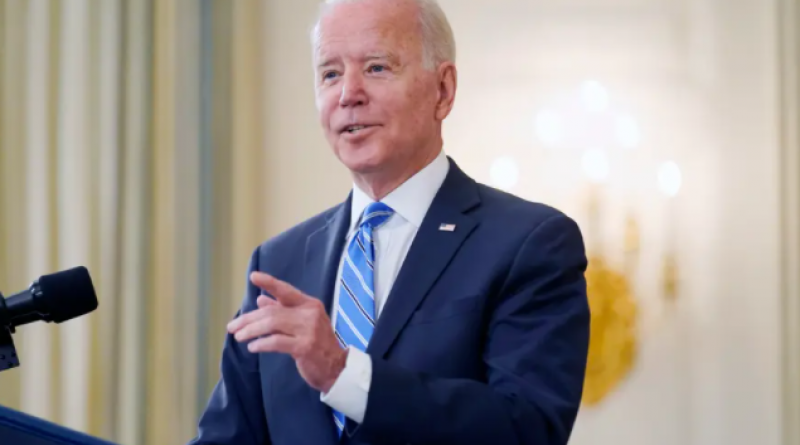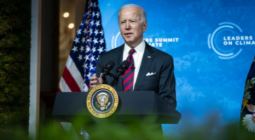Yes, there is work to do – but progress is being made over the climate crisis

We should hold governments’ feet to the fire, but also acknowledge that good work is being done, writes
The deadly flooding in Europe has produced a torrent of political comment about the climate crisis. Participants in the upcoming Federal election in Germany have been urged to raise their ambitions for reducing greenhouse gas emissions accordingly.
The conflation of weather and climate has become a predictable debating device which is aimed at provoking shock or shaming the political class, and the wider public, into doing more. I worry that it may be counterproductive.
We shall collectively make most progress in reducing greenhouse gas emissions if we stick to scientific evidence and to its policy implications, and then acknowledge progress when the right things are done. Alarm and despair do not help.
There is a sound scientific basis for arguing that a warming planet will, in general, be prone to more severe weather events – be it more extreme hurricanes or extreme heat – and that these extreme events will be more intense. But floods and other natural disasters are not new and it won't convince those who need to be convinced if every single event is attributed this way.
Moreover, impacts vary. The weather system which produced the German floods – a very slow-moving area of low pressure - had its counterpart in the slow-moving area of high pressure over the UK.
My bigger point is that there are some genuinely positive developments in addressing the climate crisis, which one would be completely unaware of if tuned in solely to agonised, angry negativity.
The independent climate scientists who compile the Climate Action Tracker have pointed out that, if the recent and plausible commitments of the USA and China are realised – targeting net zero in respectively in 2050 and 2060 – there is every reason to believe average temperature increase can be pushed downwards towards 2 degrees by the end of the century: much better than feared getting closer to the objective set in Paris in 2016.
Nonetheless, they acknowledge that a lot more needs to be done and that there are several “bad actors” – Australia, Brazil, Russia and Saudi Arabia – but the biggest emitters now have a reasonably good tale to tell about recent performance and future commitments.
The UK is a good place to start since the UK will be hosting the November COP26 summit and its leadership will be important to deliver agreement on the next big steps to drive down greehouse gas emissions. It is easy to be pessimistic about the UK where political tribalism and short-term decision making are not helpful when it comes to delivering long term targets.
But even Margaret Thatcher, however improbably, took the issue very seriously in office, as have her successors. Since five-year carbon budgets were adopted in 2008 based on recommendations of the Climate Change Committee, the first three budgets were met. Statistics show that in 2019, emissions were 45 per cent down on 1990 levels.
Meeting the 2050 target of net zero is ambitious (with greenhouse gas emissions offset by absorption through, for example, tree planting) but it no longer looks fanciful. Unlike other right wing, populist, governments, the Boris Johnson administration seems to take the climate crisis seriously.
The position in the USA has changed massively for the better, with the priority President Joe Biden has given to re-establishing US leadership on the climate crisis. And thankfully it is now clear that the disastrous presidency of Donald Trump, and his efforts to sabotage global and national climate action, did less damage than it might have. States and cities, covering 70 per cent of the US economy, simply got on with climate action plans while far-sighted business proceeded with the development of electric vehicles, battery technology and cutting the cost of renewable energy.
Biden’s climate programme involves a 50 per cent fall in emissions from 2005 levels by 2030 and then net zero by 2050. The big spending commitments on climate which were part of the Infrastructure Bill which Biden put before Congress had to be diluted to secure some Republican support, but this was achieved by focusing more heavily on regulatory changes which can be pursued by the Federal government rather than controversial tax and spend measures.
The other big, positive, development has been China’s decision to make ambitious climate commitments rather than hide behind its usual defence that since developed economies largely created the problem through their early industrialisation, they have responsibility for solving it. Since China is now the largest emitter of greenhouse gas its cooperation is essential. President Xi Jinping has committed China to a 2060 target for net zero and to falling emissions before 2030.
Sceptics rightly point to the high level of coal use envisaged in China’s latest five-year plan published in March – and to the continued promotion of coal burning for power generation in its overseas “Belt and Road” projects. On the other hand, China already has big solar, wind, nuclear and hydro developments underway and is clearly aiming for global leadership in fields like electric vehicles. It also has a tradition of delivering on the long term commitments it makes them, as it has with reductions in the carbon-intensity of production.
Furthermore, China’s commitments have encouraged Japan and Korea to follow suit. And it is possible that one of the unintended by-products of the current tense relations between China and Australia is that Australia will be forced to rethink its high level of dependence on China, for coal exports. Australia can no longer rely on a climate change denier in the White House to provide political cover for its failure to take the crisis seriously.
The EU, taken as a whole, accounts for around 20 per cent of the world economy and 10 per cent of global CO2 emissions. This week it has set out its future plans, which have some credibility since the EU met its previous targets. In 2007 it set the objective of cutting emissions by 20 per cent by 2020 and overachieved (23 per cent). The EU now faces the more ambitious objective of cutting emissions by over 30 per cent in nine years, if it is to meet its 2030 target en route to becoming net zero in 2050.
The range of measures being advocated by the Commission includes the ending of petrol and diesel cars by 2035, taxes on aviation and shipping fuel, and the extension of the carbon trading scheme to force up the cost of heating and transport. The proposals have produced howls of protest from poorer EU countries (which still rely heavily on coal), the aviation industry and from carbon-intensive industries. To placate them, the Commission envisages a tax on carbon-intensive imports from outside Europe.
It is perfectly understandable that environmentalists should express scepticism that politicians can deliver such ambitious commitments and they have an important role holding politicians to account. What is much less useful is the contemptuous dismissal of the EU proposals by some as – always – hopelessly inadequate.
Of course governments’ feet should be held to the fire, but we should not wallow in pessimism and catastrophe. There also needs to be acknowledgement of what has been achieved by technology, business and politicians and of the scale of ambition now being shown. A spell of climate optimism is due.
Sir Vince Cable is the former leader of the Liberal Democrats and served as secretary of state for business, innovation and skills from 2010 to 2015
July 2021
The Independent




